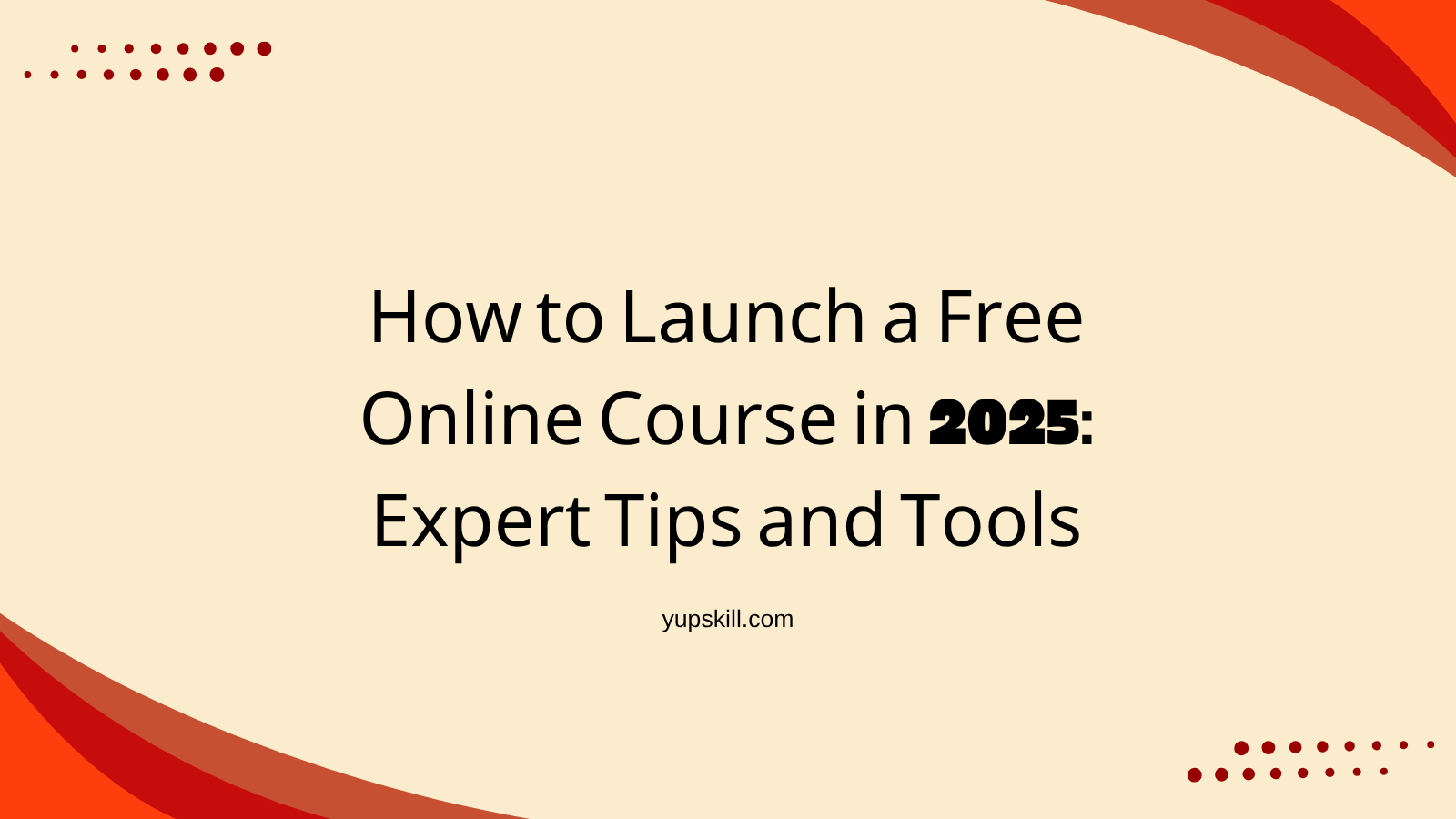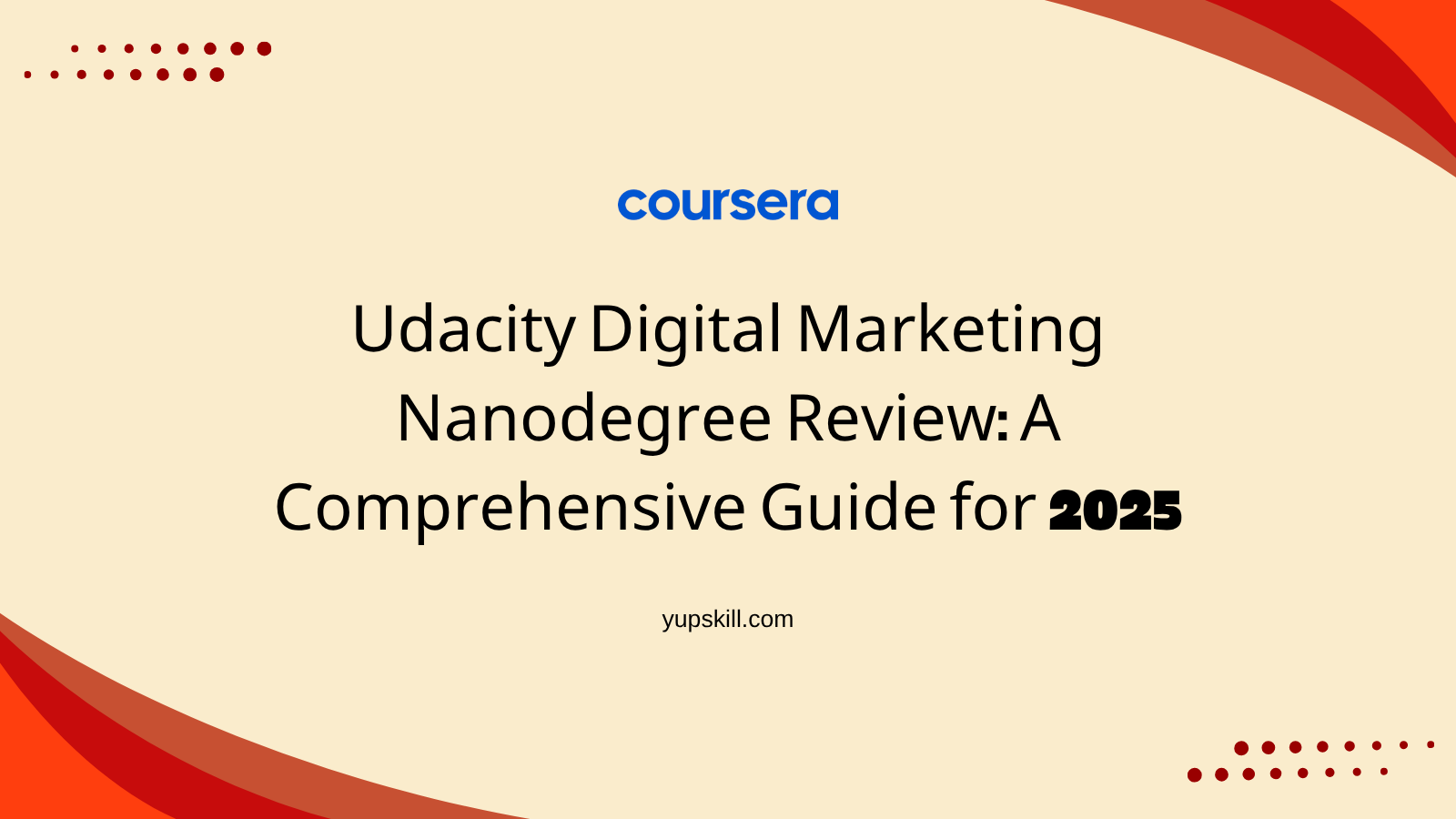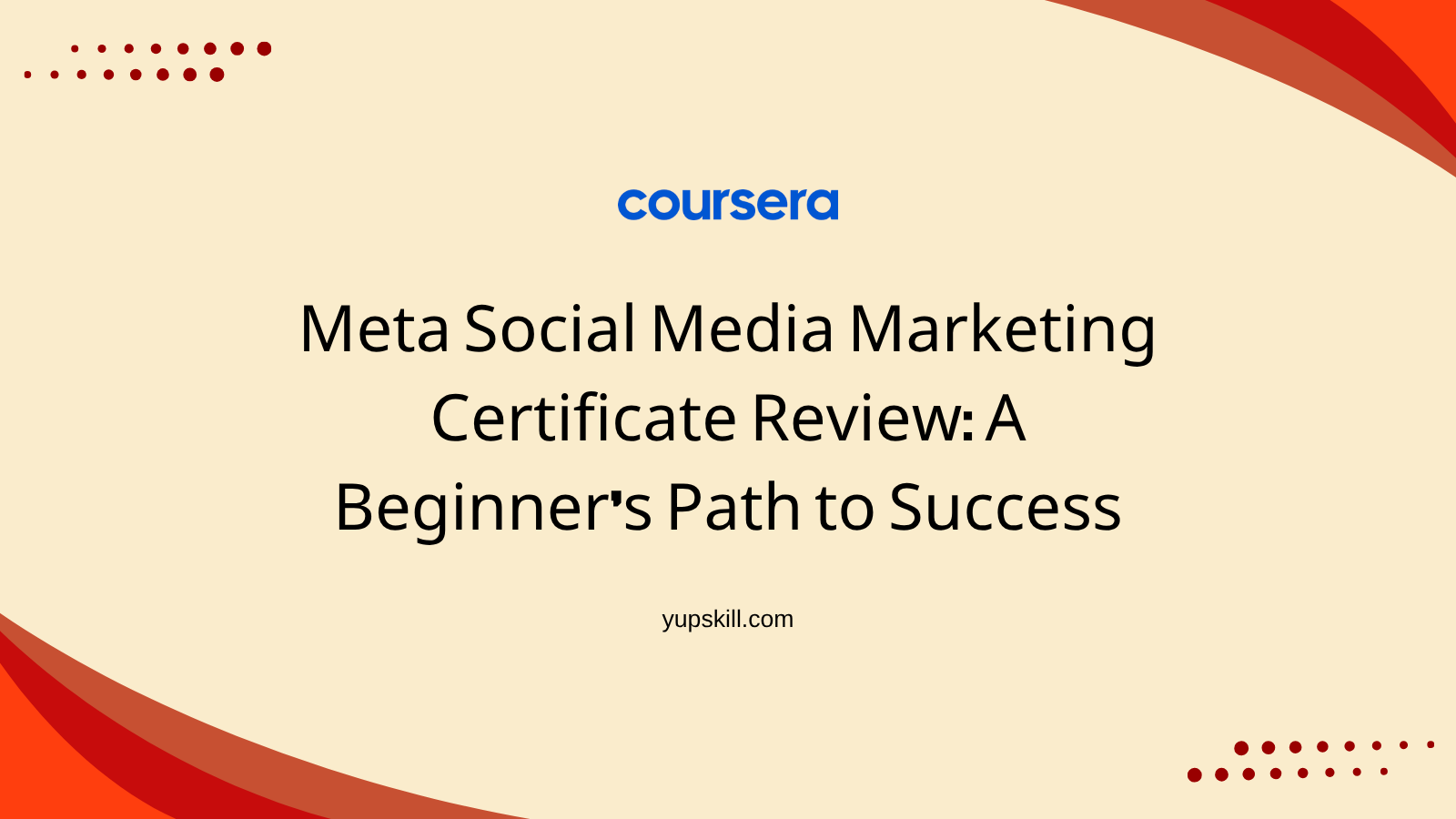In an era where lifelong learning is more accessible than ever, two platforms stand out as industry leaders: Mindvalley and MasterClass.
While both platforms offer valuable content for individuals seeking to grow, expand their skills, and improve their lives, their approaches are fundamentally different. Each platform has carved its niche, catering to distinct audiences, educational goals, and teaching methods.
In this article, we will dive deep into an in-depth comparison of Mindvalley and MasterClass, analyzing their core features, course offerings, pricing structures, teaching styles, and community engagement. By the end, you’ll have a clearer understanding of which platform is best suited for your needs.
An Overview of Mindvalley
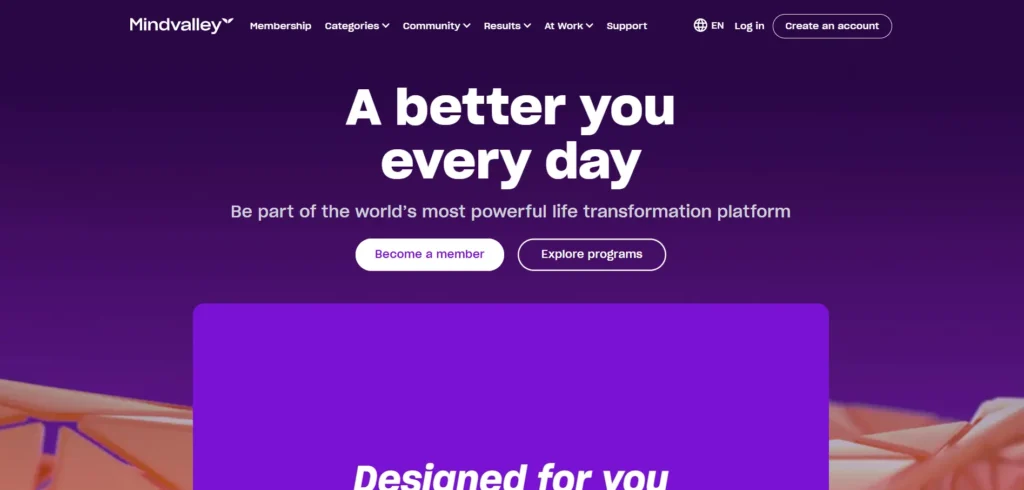
Mindvalley is a personal growth and development platform that has earned a reputation for its holistic approach to education. Founded by Vishen Lakhiani, Mindvalley offers a range of online courses (referred to as “quests”) designed to help individuals grow intellectually, emotionally, and spiritually. The platform focuses on a wide range of topics such as meditation, mindfulness, health and wellness, entrepreneurship, and self-improvement.
Mindvalley’s goal is to go beyond traditional education by incorporating a mix of practical wisdom, self-development techniques, and transformative personal growth. The courses on Mindvalley are typically structured to promote lasting change, with a focus on daily practices, integration of lessons into real life, and community support. The platform’s philosophy is rooted in the idea that personal growth is essential to improving one’s overall quality of life.
Mindvalley offers content from renowned authors, speakers, and thought leaders in the personal development space. Many of its instructors are well-known authors or speakers, such as Robin Sharma, Marisa Peers, and Sadhguru. Through these instructors, Mindvalley promotes concepts like positive psychology, productivity, goal-setting, emotional intelligence, and meditation.
An Overview of MasterClass

MasterClass, on the other hand, offers a very different approach. It is an online education platform that provides video lessons taught by some of the world’s most famous individuals in fields ranging from culinary arts to acting, music, filmmaking, and even business. Founded by David Rogier and Aaron Rasmussen in 2015, MasterClass delivers high-quality, professionally produced video content with the intent of offering “master classes” from experts who are at the top of their fields.
What makes MasterClass unique is its focus on learning from the best of the best. The platform’s lineup includes legendary figures such as Gordon Ramsay (culinary arts), Serena Williams (tennis), Aaron Sorkin (screenwriting), and Martin Scorsese (filmmaking). These lessons are a combination of real-world knowledge and personal anecdotes that provide unparalleled insight into each instructor’s area of expertise.
Unlike Mindvalley, which is focused on personal transformation and growth, MasterClass targets skill acquisition in specialized areas, particularly for those who want to enhance their abilities in creative, technical, or business fields. The courses are beautifully shot and designed to feel more like an engaging visual experience than traditional online learning.
Mindvalley vs MasterClass: Educational Goals and Focus Areas
The primary distinction between Mindvalley and MasterClass lies in the educational goals and subject areas covered by each platform. Both platforms offer learning opportunities, but their focus is directed at different aspects of personal and professional development.
Mindvalley:
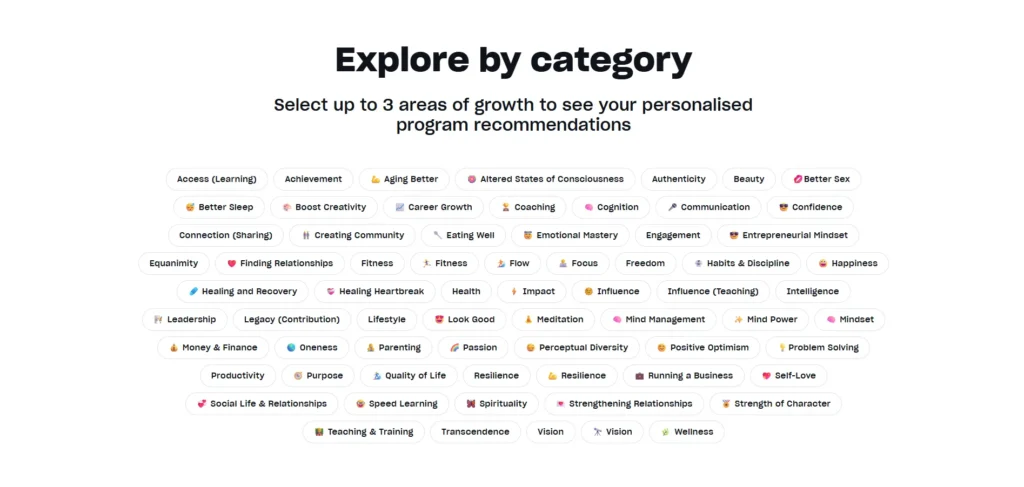
Mindvalley’s educational philosophy revolves around personal transformation. It is not just about learning new skills or acquiring new knowledge but rather about shaping your mindset and improving your quality of life. Courses on Mindvalley cover a broad spectrum of topics such as:
- Personal Growth: Mindvalley offers courses that help individuals grow emotionally, mentally, and spiritually. The focus is on emotional intelligence, meditation, mindfulness, goal setting, and leadership.
- Health and Wellness: Courses that help people lead healthier, more balanced lives through fitness, nutrition, and mental health practices.
- Entrepreneurship: Mindvalley offers courses to support individuals looking to start or grow their businesses, often combining practical business strategies with personal development insights.
- Relationships and Social Impact: Courses in this category focus on improving personal relationships, enhancing social connections, and making a positive impact on the world.
Overall, Mindvalley is geared toward people who are looking for personal growth and self-improvement in all areas of life.
MasterClass:
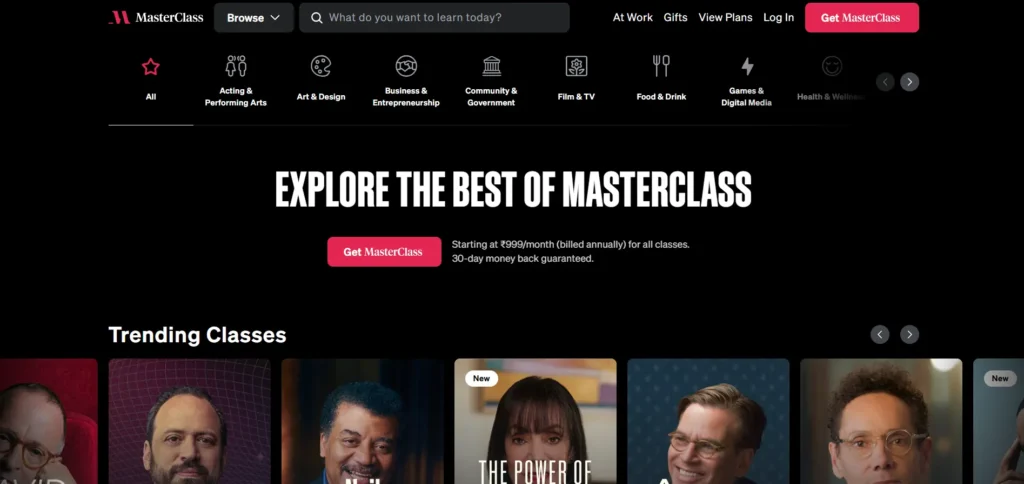
In contrast, MasterClass is focused on skill acquisition and expertise. Rather than promoting a broader, holistic approach to life, MasterClass offers specific training in creative, professional, and practical fields. Its core focus areas include:
- Culinary Arts: With instructors like Gordon Ramsay and Wolfgang Puck, MasterClass offers in-depth lessons on cooking techniques, culinary theory, and restaurant management.
- Writing and Literature: Writers like Neil Gaiman and Margaret Atwood teach courses on fiction writing, storytelling, and screenwriting.
- Music: Courses in this area cover music theory, songwriting, and production, with lessons from famous musicians like Herbie Hancock and Tom Morello.
- Business and Innovation: There are also several courses aimed at entrepreneurs and business professionals, taught by experts like Howard Schultz (former CEO of Starbucks) and Sara Blakely (founder of Spanx).
- Filmmaking: Learn the art of filmmaking from directors like Martin Scorsese, and screenwriting from Aaron Sorkin.
MasterClass is for people who want to gain expert knowledge and skills in a specific area, often from the perspectives of world-renowned professionals.
Course Structure: Daily Learning vs. Structured Lessons
When it comes to course structure, Mindvalley and MasterClass take very different approaches.
Mindvalley:
Mindvalley’s courses are structured in a way that promotes continuous, incremental learning. They are designed to be completed over a period of time (usually 30-50 days). Each course is divided into daily lessons (known as quests), which are typically about 20 minutes long. These lessons often include video content, written exercises, meditation, and journaling prompts that help reinforce the learning. This structure encourages consistency and integrates the course material into daily life.
The daily format is perfect for those who prefer consistent, bite-sized learning and like to apply new lessons regularly. There is a strong emphasis on self-reflection and practical application, which helps solidify new habits and ideas.
MasterClass:
In contrast, MasterClass offers courses that are more like traditional online lectures. Each course consists of video lessons, with some featuring written materials or downloadable resources. Most courses include between 10 to 20 lessons, with each lesson lasting around 10-20 minutes. The focus is on providing insights into the instructor’s expertise, often accompanied by practical advice or demonstrations.
MasterClass courses do not have the same daily commitment as Mindvalley. You can complete them at your own pace, making them ideal for individuals who prefer a self-paced learning experience without daily engagements or assignments. The format is more passive, with less interaction and reflection compared to Mindvalley’s immersive approach.
Learning Approach: Mindvalley vs MasterClass
The learning approach on Mindvalley and MasterClass differs greatly, reflecting the platforms’ distinct educational philosophies.
Mindvalley’s Learning Approach
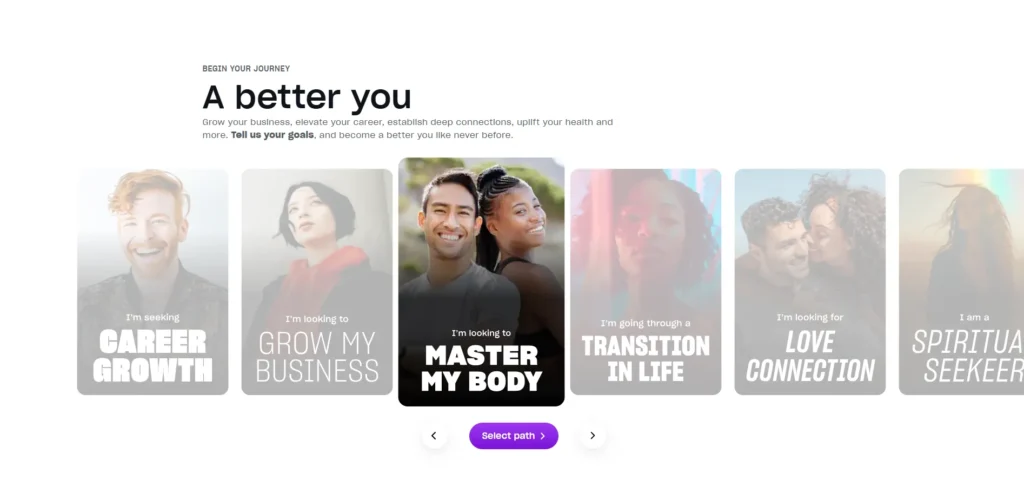
Mindvalley’s learning approach is built around personal transformation. The platform is designed to guide learners through a journey of self-improvement, focusing on emotional, mental, and spiritual growth. Courses on Mindvalley are structured as “quests”, which are broken into daily lessons. These lessons usually last around 15–20 minutes, with an emphasis on consistent daily practice. The idea is to integrate learning into everyday life, gradually forming lasting habits. Each lesson often combines video lectures, reflective exercises, journaling prompts, and guided meditations.
This structure encourages active engagement—learners are not just watching videos but are expected to apply the concepts in real life. The courses also include practical assignments to reinforce learning. Moreover, Mindvalley fosters a supportive community. Learners can interact with each other, share their experiences, and offer support, making the platform more immersive and collaborative. The sense of daily progression is integral to Mindvalley’s approach, and the feedback and interaction within the community serve as a form of accountability, keeping users engaged and motivated.
MasterClass’s Learning Approach
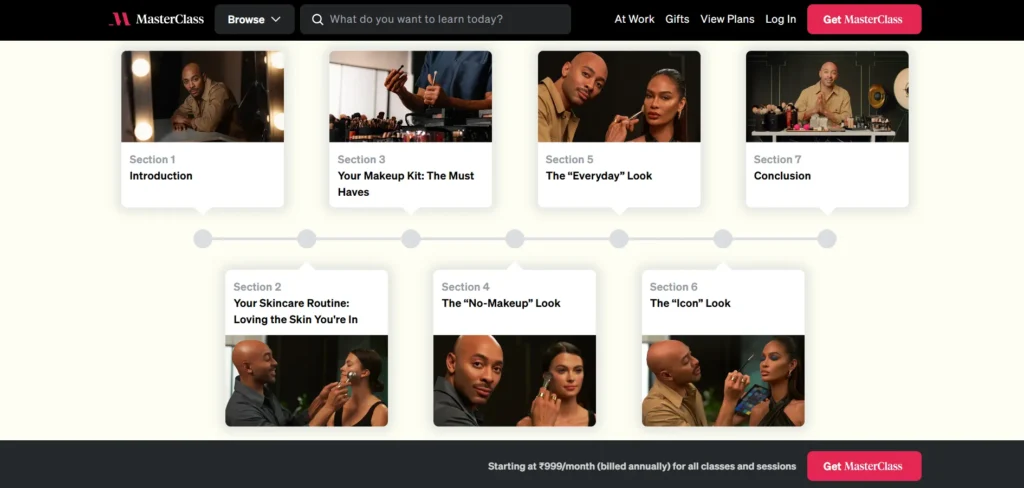
MasterClass takes a more passive, lecture-based approach to learning. Courses consist of professionally produced video lessons taught by world-renowned experts in fields like cooking, writing, filmmaking, and more. Each lesson is typically 10–20 minutes long, and while the content is top-notch, the structure is more akin to watching a documentary rather than participating in an interactive learning process.
MasterClass is less about continuous, hands-on practice and more about observing experts share their knowledge and experiences. The courses are designed for those who prefer to learn from the best in their field without needing day-to-day involvement or personal reflection. While MasterClass doesn’t encourage much community interaction or engagement, it offers a self-paced learning experience, perfect for users who want flexibility without the pressure of regular exercises or live interactions.
Instructors: Experts vs. Celebrities
Both Mindvalley and MasterClass attract high-profile instructors, but the type of instructors featured on each platform is different.
Mindvalley:
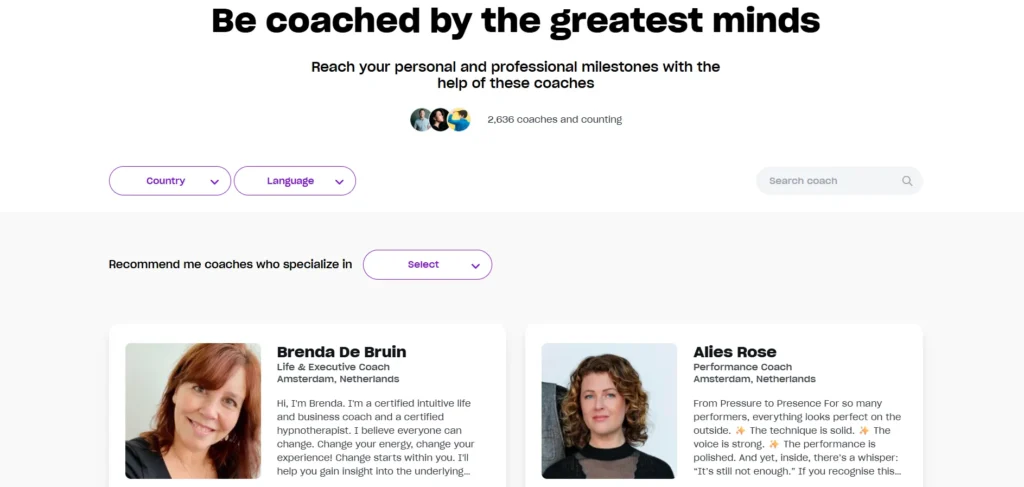
Mindvalley’s instructors are personal growth experts, coaches, and thought leaders in fields such as health, leadership, spirituality, and personal development. These are people who have dedicated their lives to helping others grow, including:
- Robin Sharma (author of “The Monk Who Sold His Ferrari”)
- Marisa Peers (expert in rapid transformational therapy)
- Sadhguru (spiritual leader and author)
- Neale Donald Walsch (author of the “Conversations with God” series)
The platform’s instructors are known for their transformational teachings that go beyond simple knowledge transfer. Their courses tend to involve deep learning, spiritual development, and mental well-being.
MasterClass:
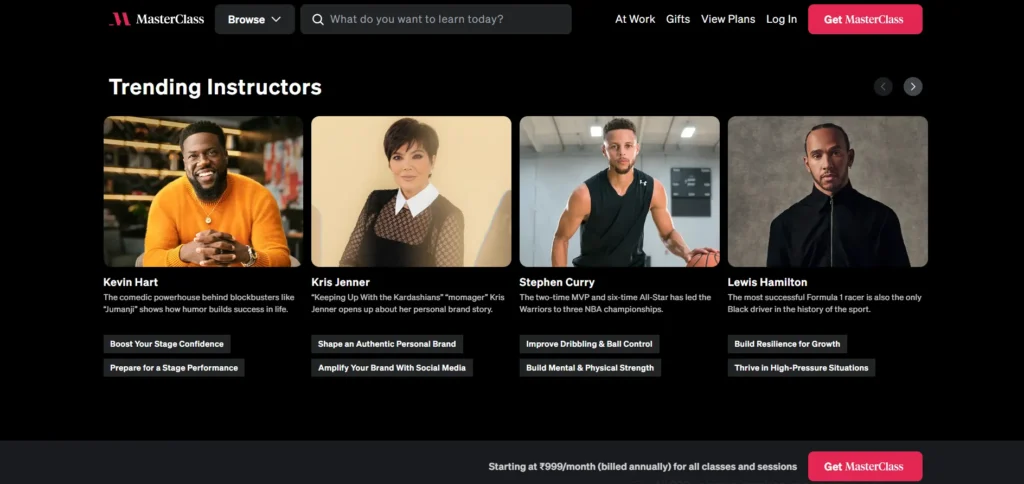
MasterClass, by contrast, works with some of the biggest celebrities and industry titans, many of whom are globally recognized for their expertise. The instructors are not necessarily known for their teaching ability but are top performers in their respective fields. The roster includes:
- Gordon Ramsay (cooking)
- Serena Williams (tennis)
- Aaron Sorkin (screenwriting)
- Martin Scorsese (filmmaking)
These instructors teach based on their real-life experience and insights into their craft. The value of MasterClass lies in the unique perspective that these instructors bring to the table. However, the courses are generally less interactive and more about passive learning, as opposed to Mindvalley’s more hands-on, community-driven approach.
Pricing: Value for Money
Pricing is often one of the first factors to consider when choosing between two online learning platforms. Both Mindvalley and MasterClass operate on subscription models, but their pricing structures differ.
Mindvalley:
Mindvalley offers two main pricing options:
- $49 per month (billed monthly)
- $399 per year (billed annually)
The subscription provides access to all courses on the platform, including all past and new content. Considering the depth of the content and the holistic nature of the courses, Mindvalley’s pricing can be seen as quite reasonable for anyone committed to personal transformation. There is also a 15-day refund policy if you are not satisfied with the platform.
MasterClass:
MasterClass operates on an annual subscription basis, offering three pricing plans:
- $120 per year (for access to all courses)
- $180 per year (Plus plan, with the ability to download courses for offline viewing)
- $240 per year (Premium plan, which offers additional benefits such as exclusive content)
While MasterClass does not offer a free trial, it does have a 30-day money-back guarantee. Given that the platform provides unlimited access to all of its courses (both current and future) with any subscription, the pricing can be considered a strong value for those looking to learn from experts in specific fields.
Conclusion: Which Platform is Right for You?
Ultimately, the choice between Mindvalley and MasterClass comes down to your learning goals and preferences.
If you’re someone who seeks personal transformation, wants to improve mental well-being, develop better habits, or grow spiritually, Mindvalley is the platform for you. Its focus on holistic personal development, coupled with interactive daily lessons and a supportive community, makes it ideal for anyone looking to embark on a journey of self-discovery and growth.
However, if your interest lies in gaining specific, expert knowledge in a creative or professional field, MasterClass might be the better option. Whether you want to learn cooking, writing, acting, or filmmaking from world-renowned experts, MasterClass offers unmatched access to some of the greatest minds in their fields.
Both platforms offer excellent value, but they cater to different types of learners. Mindvalley is about growth across all areas of life, while MasterClass is about mastering a craft through the guidance of the best in the business. Your decision should reflect your personal goals, learning style, and areas of interest.
FAQs
What is the main difference between Mindvalley and MasterClass?
Mindvalley focuses on personal growth and transformation, while MasterClass emphasizes learning specific skills from world-renowned experts.
Which platform is better for personal development?
Mindvalley is ideal for holistic personal growth, mindset improvement, and habit building.
Are Mindvalley courses more interactive than MasterClass?
Yes, Mindvalley includes daily exercises, community interaction, and practical assignments, whereas MasterClass is mostly lecture-based.
How does the pricing of Mindvalley compare to MasterClass?
Mindvalley costs $49/month or $399/year for all-access, while MasterClass offers an annual subscription from $120 to $240 for unlimited courses.
Can you learn practical skills on Mindvalley like on MasterClass?
Mindvalley focuses on mindset and self-growth, while MasterClass is better for acquiring hands-on skills like cooking, writing, or filmmaking.

